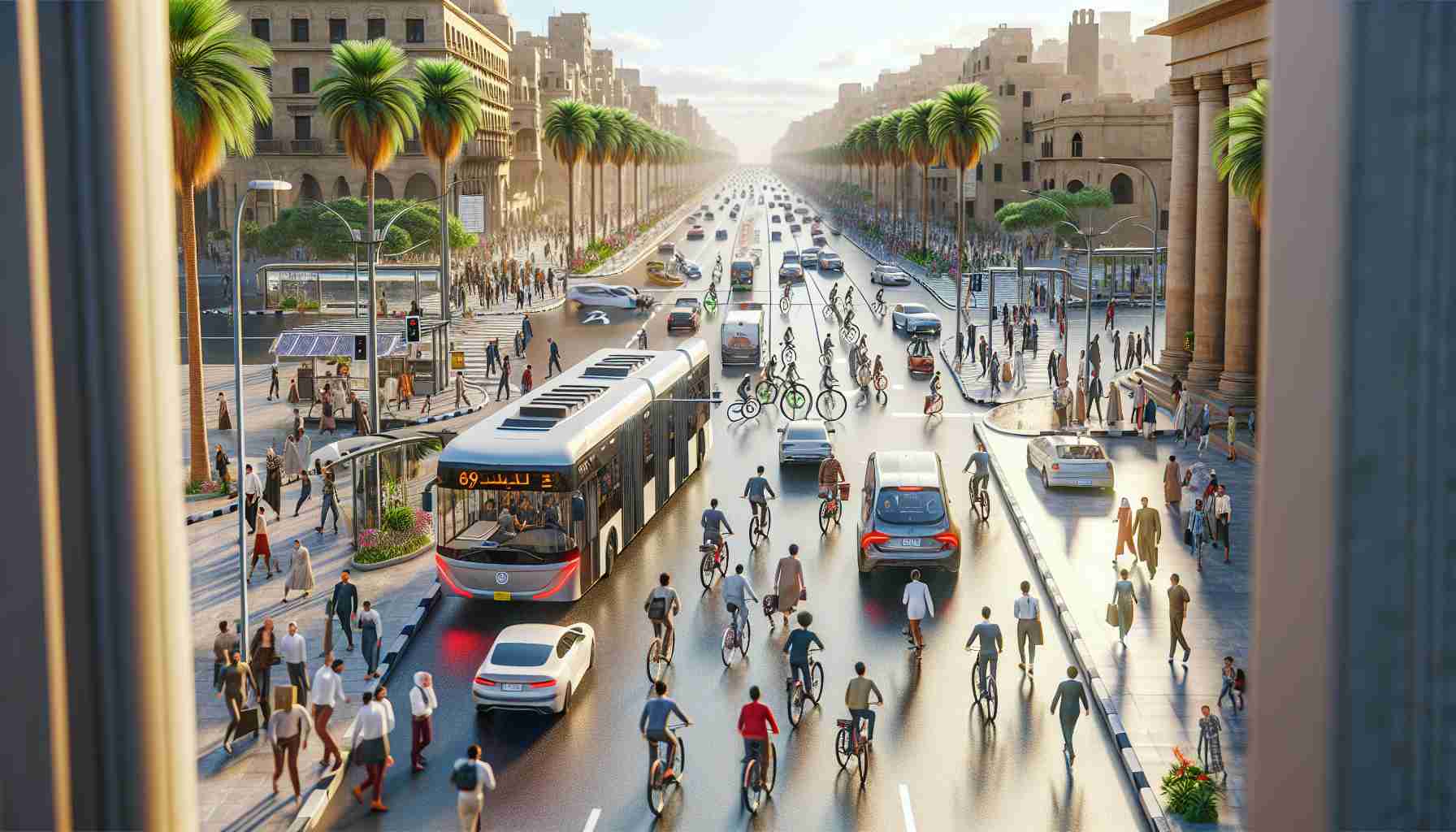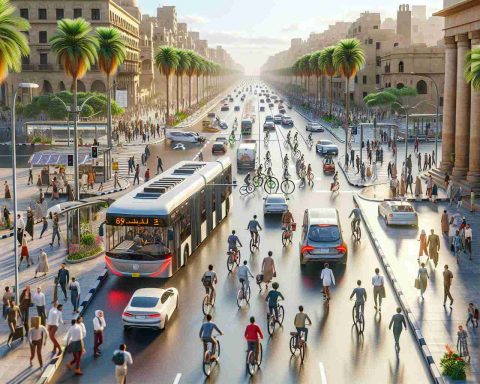Egypt has recently unveiled a groundbreaking project to revolutionize its transportation sector through sustainable means. A substantial financial backing from the World Bank has kickstarted this initiative, which primarily focuses on enhancing air quality and reducing noise pollution across the nation. The cornerstone of this endeavor involves the procurement of a significant fleet comprising 180 cutting-edge electric public transport buses, a notable shift towards eco-friendly transit options.
Headed by Engineer Reem Abdel Rahman, the Central Administration for Air Quality and Noise Protection at the Ministry of Environment has spearheaded the implementation of this visionary project. The rigorous selection process for the acquisition of these state-of-the-art buses is currently underway, setting the stage for a futuristic public transport system.
The recent deliberations led by the Energy and Environment Committee of the House of Representatives shed light on the government’s commitment to promoting sustainable transportation alternatives. Specific emphasis was placed on educating the populace about the myriad environmental advantages associated with electric vehicles, signaling a progressive stance towards greener mobility solutions.
In a bid to standardize regulations surrounding electric vehicles, discussions centered around the formulation of Egyptian standards for charging stations compatible with authorized electric vehicles. The comprehensive meeting brought together key stakeholders from various ministries and regulatory bodies, culminating in crucial recommendations geared towards steering Egypt towards a sustainable transportation future. Anticipated follow-up discussions are expected to chart the course for further transformative measures in the realm of eco-conscious mobility.
Egypt is pioneering sustainability in its transportation sector with innovative approaches beyond the introduction of electric buses. One notable development is the establishment of dedicated cycling lanes in major cities like Cairo and Alexandria. This initiative, aimed at reducing traffic congestion and promoting eco-friendly modes of transport, showcases the country’s commitment to fostering a holistic sustainable transportation ecosystem.
What role do cycling lanes play in Egypt’s sustainable transportation future?
Cycling lanes contribute significantly to reducing vehicular traffic, improving air quality, and promoting physical activity among citizens. By providing safe routes for cyclists, Egypt aims to encourage more people to opt for cycling as a mode of commuting, thereby reducing the reliance on motor vehicles.
What are the key challenges associated with integrating cycling lanes into urban infrastructure?
One of the primary challenges is retrofitting existing road networks to accommodate cycling lanes without disrupting the flow of traffic. Additionally, ensuring the safety of cyclists amidst the chaotic urban environment poses a considerable challenge that requires meticulous planning and implementation of safety measures such as signage and barriers.
What advantages do cycling lanes offer in a sustainable transportation framework?
Cycling lanes contribute to reducing greenhouse gas emissions, promoting physical fitness, and fostering a sense of community among cyclists. They also play a crucial role in enhancing urban aesthetics and creating a more livable environment for residents.
Are there any disadvantages or controversies associated with the introduction of cycling lanes?
Some potential disadvantages include initial resistance from motorists accustomed to the status quo, limited space for lane expansion in densely populated areas, and the need for continuous maintenance to ensure the safety and usability of the lanes.
Overall, Egypt’s investment in cycling infrastructure represents a forward-looking approach to sustainable urban mobility, complementing the deployment of electric buses and other eco-friendly transport solutions.
For more information on sustainable transportation initiatives in Egypt, visit Egypt’s official government website.












